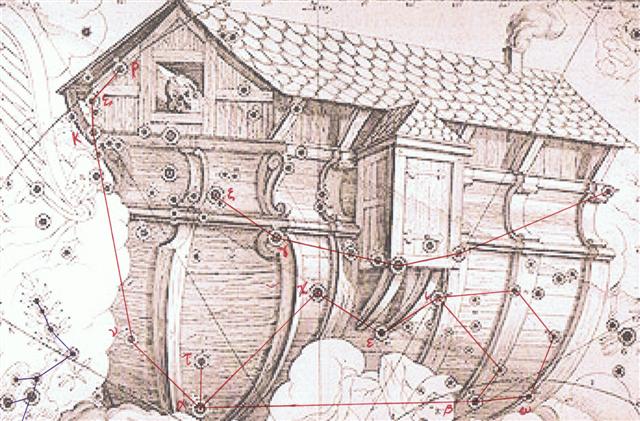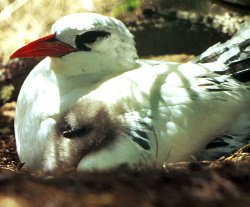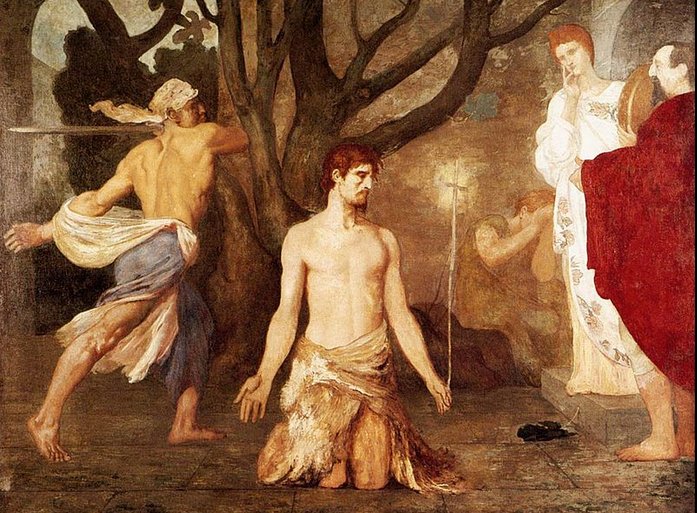The ship of the argonauts was (of course) cut up (divided) into pieces by modern man: ... In modern western society focus is intent on division instead of multiplication - separating everything down to its atoms (and further down) in order to analyze instead of putting all togeter in a harmonious way. Speed and efficiency demands division of labour instead of working together. But this will make it impossible to look ahead with care. For the Polynesians it was easy, in spite of a very complex map of reality they saw it clearly, because in agriculture everything was based on cycles ... Thus Canopus was not named α in the 'Ship' but α in the 'Keel (Carina)' and Naos not named ζ in the 'Ship' but ζ in the 'Stern (Puppis)'.
Although the sequence of its Greek letters was not cut up but was retained as a whole. And the figure was also kept intact:
... The brothers had no idea what Maui was up to now, as he paid out his line. Down, down it sank, and when it was at the bottom Maui lifted it slightly, and it caught on something which at once pulled very hard. Maui pulled also, and hauled in a little of his line. The canoe heeled over, and was shipping water fast. 'Let it go!' cried the frightened brothers, but Maui answered with the words that are now a proverb: 'What Maui has got in his hand he cannot throw away.' 'Let go?' he cried. 'What did I come for but to catch fish?' And he went on hauling in his line, the canoe kept taking water, and his brothers kept bailing frantically, but Maui would not let go. Now Maui's hook had caught in the barge-boards of the house of Tonganui, who lived at the bottom of that part of the sea and whose name means Great South; for it was as far to the south that the brothers had paddled from their home. And Maui knew what it was that he had caught, and while he hauled at his line he was chanting the spell that goes: O Tonganui / why do you hold so stubbornly there below? // The power of Muri's jawbone is at work on you, / you are coming, / you are caught now, / you are coming up, / appear, appear. // Shake yourself, / grandson of Tangaroa the little. The fish came near the surface then, so that Maui's line was slack for a moment, and he shouted to it not to get tangled. But then the fish plunged down again, all the way to the bottom. And Maui had to strain, and haul away again. And at the height of all this excitement his belt worked loose, and his maro fell off and he had to kick it from his feet. He had to do the rest with nothing on. The brothers of Maui sat trembling in the middle of the canoe, fearing for their lives. For now the water was frothing and heaving, and great hot bubbles were coming up, and steam, and Maui was chanting the incantation called Hiki, which makes heavy weights light. At length there appeared beside them the gable and thatched roof of the house of Tonganui, and not only the house, but a huge piece of the land attached to it. The brothers wailed, and beat their heads, as they saw that Maui had fished up land, Te Ika a Maui, the fish of Maui. And there were houses on it, and fires burning, and people going about their daily tasks. Then Maui hitched his line round one of the paddles laid under a pair of thwarts, and picked up his maro, and put it on again. Then follows something which we could not really understand properly withouth equating the House of Tonganui with Argo Navis: 'Now while I'm away,' he said, 'show some common sense and don't be impatient. Don't eat food until I come back, and whatever you do don't start cutting up the fish until I have found a priest and made an offering to the gods, and completed all the necessary rites. When I get back it will be all right to cut him up, and we'll share him out equally then. What we cannot take with us will keep until we come back for it.' Maui then returned to their village. But as soon as his back was turned his brothers did the very things that he had told them not to. They began to eat food, which was a sacrilege because no portion had yet been offered to the gods. And they started to scale the fish and cut bits off it. When they did this, Maui had not yet reached the sacred place and the presence of the gods. Had he done so, all the male and female deities would have been appeased by the promise of portions of the fish, and Tangaroa would have been content. As it was they were angry, and they caused the fish of Maui to writhe and lash about like any other fish. That is the reason why this land, Aotearoa, is now so rough and mountainous and much of it so unuseful to man. Had the brothers done as Maui told them it would have lain smooth and flat, an example to the world of what good land should be. But as soon as the sun rose above the horizon the writhing fish of Maui became solid underfoot, and could not be smoothed out again. This act of Maui's, that gave our people the land on which we live, was an event next in greatness to the separation of the Sky and Earth ... When the Sun rose up the sky region named Earth (the 'Fish') became fixed. This confirms our interpretation, because it ought to mean the calendar of the Sun took command and that the rather random movements of the position of the double months (2 * 29½ = 59) against the starry dome of the night became a thing of the past: ... The Symplegades ... or Clashing Rocks, also known as the Cyanean Rocks, were, according to Greek mythology, a pair of rocks at the Bosphorus that clashed together randomly. They were defeated by Jason and the Argonauts, who would have been lost and killed by the rocks except for Phineus' advice. Jason let a dove fly between the rocks; it lost only its tail feathers. The Argonauts rowed mightily to get through and lost only part of the stern ornament. After that, the Symplegades stopped moving permanently ... The Argonauts, with the Golden Fleece on board, had to pass the Symplegades, the clashing rocks. Once a ship with its crew came through unharmed - so the 'blessed ones' (makaroi) had decided long ago - the Symplegades would stay fixed, and be clashing rocks no longer. After that 'accepting the novel laws of the fixed earth', they should 'offer an easy passage to all ships, once thay had learnt defeat' ... In the G text we will find a Rei at Ga2-27 (alluding to π counted as the fraction 22 / 7) and the form of this type of glyph could very well have been used to indicate a ship (naos), oriented vertically - turned around a quarter clockwise in order to point to the effects of the precession since the ancient time when Naos had been rising with the Sun a quarter of a year earlier than in day 201 (July 20). From there it becomes obvious that the first Rei in the text could have pointed at Canopus, i.e. like a kind of determinant for Argo Navis:
... The Pythagoreans make Phaeton fall into Eridanus, burning part of its water, and glowing still at the time when the Argonauts passed by. Ovid stated that since the fall the Nile hides its sources. Rigveda 9.73.3 says that the Great Varuna has hidden the ocean. The Mahabharata tells in its own style why the 'heavenly Ganga' had to be brought down. At the end of the Golden Age (Krita Yuga) a class of Asura who had fought against the 'gods' hid themselves in the ocean where the gods could not reach them, and planned to overthrow the government. So the gods implored Agastya (Canopus, alpha Carinae = Eridu) for help. The great Rishi did as he was bidden, drank up the water of the ocean, and thus laid bare the enemies, who were then slain by the gods. But now, there was no ocean anymore! Implored by the gods to fill the sea again, the Holy One replied: 'That water in sooth hath been digested by me. Some other expedient, therefore, must be thought of by you, if ye desire to make endeavour to fill the ocean ...
When the Dove of Noah (Columba → Columbus) came back with a green twig in her beak
it meant she had found new Land and that all the waters of the Sea had been defeated. We can count 8h / 24h * 26000 = 8667 = AD 1842 + 6825 BC. Or, given 3-25 rather than 3-21 as day zero: 6825 - 4 / 365.25 * 26000 = 6540 BC. Although anciently they certainly counted much better: ... Phaet, Phact, and Phad are all modern names for this, perhaps of uncertain derivation, but said to be from the Hadar already noted under the constellation. [Hadar was mentioned when discussing the meaning of Muliphein: '... comprehending the two stars called Had'ár, ground, and al-wezn, weight.']. The Chinese call it Chang Jin, the Old Folks. ... Away flew Maui in his pigeon shape, with his brothers admiring him as he went.
But as soon as he was out of sight he wheeled about, and flew to the clump of rushes that marked the place where his mother disappeared. He came down, in his noisy pigeon way, and strutted about for a moment. Then he lifted the rushes. He flopped into the hole and replaced the clump behind him, and was gone. A few strokes of his wings took him to that other country, and soon he saw some people talking to one another on the grass beneath some trees. They were manapau trees, a kind that grows in that land and nowhere else. Maui flew down to the tops of the trees and, without being noticed by any of the people, perched on a branch that enabled him to see them. Almost at once he recognized Taranga, sitting on the grass beside her husband, a man who by his dress and demeanor was plainly a chief. 'Aha,' he cooed to himself, 'there are my father and my mother just below me.' And soon he knew that he was not mistaken, for he heard their names when other members of the party spoke to them. He flopped down through the leaves and perched on the branch of a puriri tree thad had some berries on it. He turned his head this way and that, and tilted it on its side. Then he pecked off one of the berries and gently dropped it, and it hit his father's forehead. 'Was that a bird, that dropped that berry?' one of the party asked. But the father said No, it was only a berry that fell by chance. So Maui picked some more berries, and this time he threw them down quite hard, and they hit both the father and the mother and actually hurt them a little. Then everyone got up and walked round peering into the branches of the tree. The pigeon cooed, and everyone saw it. Some went away and gathered stones, and all of them, chiefs and common people alike, began throwing stones up into the branches. They threw for a long time without hitting the pigeon once, but then a stone that was thrown by Maui's father struck him. It was Maui, of course, who decided that it should, for unless he had wished it, no stone could have struck him. It caught his left leg, and down he fell, fluttering through the branches to the ground. But when they ran to pick the bird up, it had turned into the shape of a young man ... Although inconspicious, Lockyer thinks that it was of importance in Egyptian temple worship, and observed from Edfū and Philae as far back as 6400 B.C.; but that it was succeeded by Sirius about 3000 B.C., as α Ursa Majoris was by γ Draconis in the north. And he had found three temples at Medinet Habu, adjacent to each other, yet differently oriented, apparently toward α, 2525, 1250, and 900 years before our era: all these to the god Amen. He thinks that as many as twelve different temples were oriented to this star; but the selection of so faint an object for so important a purpose would seem doubtful. Phaet is 33º south of ε Orionis, the central star in the Belt, and culminates on the 26th of January ...
Phaeton → Phaet. ... Tavake is the general Polynesian name for the tropic bird, whose red tail feathers were very popular. This name is closely connected with the original population ... The Red-tailed Tropicbird, Phaethon rubricauda, is a seabird that nests across the Indian and Pacific Oceans. It is the rarest of the tropicbirds, yet is still a widespread bird that is not considered threatened. It nests in colonies on oceanic islands. The Red-tailed Tropicbird looks like a stout tern, and hence closely resembles the other two tropicbird species. It has generally white plumage, often with a pink tinge, a black crescent around the eye and a thin red tail feather. It has a bright red bill and black feet ... When breeding they mainly choose coral atolls with low shrubs, nesting underneath them (or occasionally in limestone cavities). They feed offshore away from land, singly rather than in flocks. They are plunge-divers that feed on fish, mostly flying fish, and squid ...
|
|||||||||||||||||||||||||||||||||||||||||||||||||||||||||||||||||||||||||||||||||||||||||||||||||||||||||||||||||||||||||||||||||||








